Whether its kayaking, cycling, rock climbing, ziplining between tree houses or exploring temple ruins – you can choose your own adventure in the ‘land of a million elephants’.
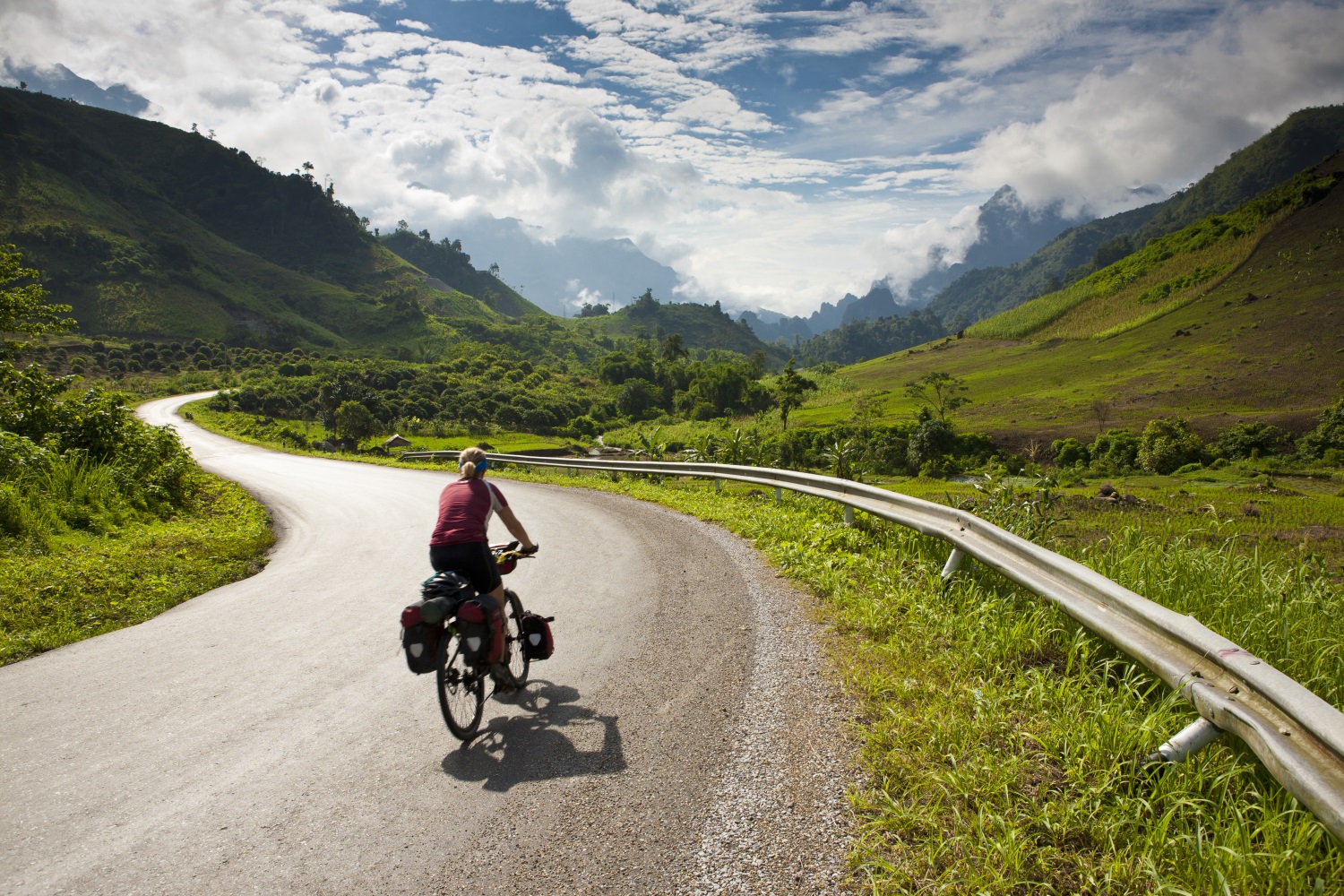
Many people head to Si Phan Don (Four Thousand Islands) to kick back and relax, but this stretch of the Mekong has too much to see to spend all your time motionless in a hammock.
The laid-back archipelago is one of the best spots in the country to kayak. Paddle through gentle waters, and a few more challenging spots, taking in the stunning scenery and stopping off at villages and islands as you meander along the river. Trips range from a few hours to a few days, with the chance to spot the endangered Irrawaddy dolphin.
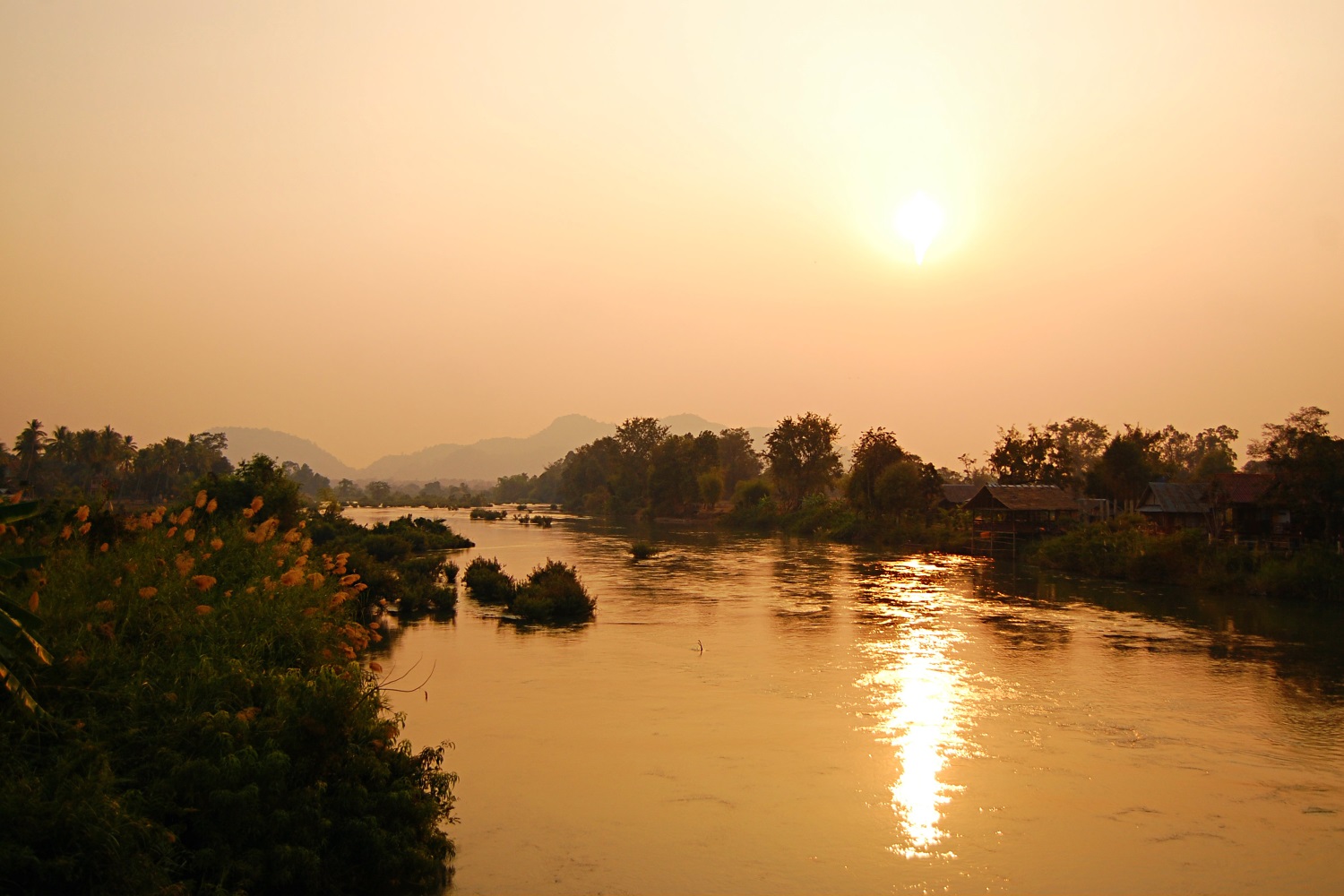
Most of the climbing in Laos is centered on the backpacker hub of Vang Vieng, with over 200 marked and bolted routes for beginners, intermediate and advanced levels. For more off-the-beaten-track climbs, head down to central Laos’ Tha Khaek, where Green Climbers Home run a climbing camp at the base of some beautiful karsts, boasting one of the easiest overhangs in the world on which to learn.
For a truly unique experience, thrill seekers should head to northern Laos to take on the Gibbon Experience. Flying at high speed through lush forest and valleys on ziplines up to 500m long will fulfil all your adventure fantasies. Part of the fun of the three-day trip is staying in tree houses that are only accessible by zipline. The surrounding forest is home to the black gibbon and the cost of the experience helps to support the conservation of their habitat. Between picking leeches off your shins and sidestepping tiger scat, you’ll be whooping with excitement.
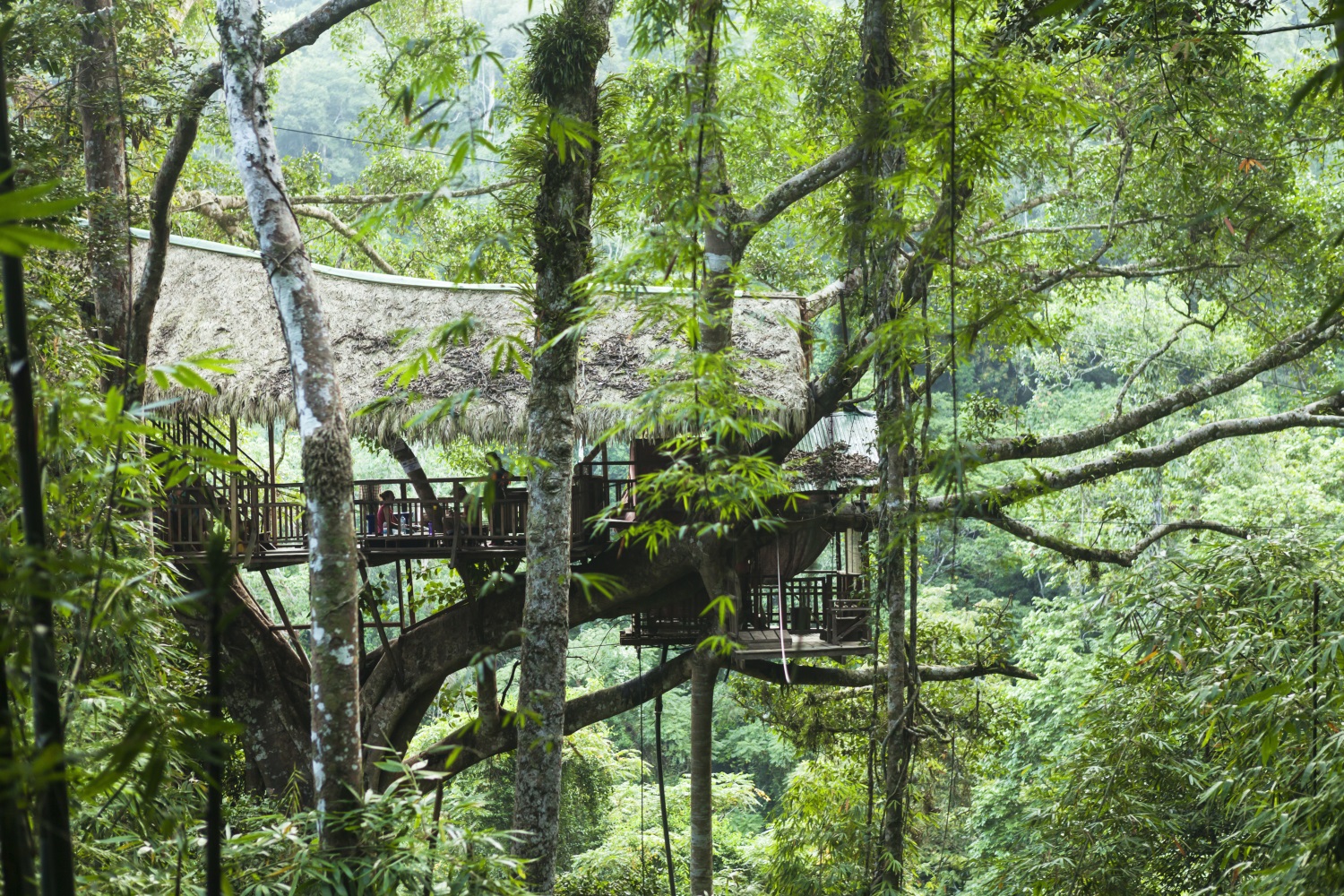
If you fancy yourself a Lara Croft or Indiana Jones type then Wat Phu, the ancient Khmer temple ruin in Champasak province, is a must see. Explore ornate crumbling temples and palaces, which are stunningly situated along the slopes of the Phu Pasak range. Though on a much smaller scale than Angkor Wat, Wat Phu is a Unesco World Heritage Site that is delightfully free of crowds. Base yourself in sultry Champasak village nearby, where you can enjoy a spa, fine digs, open-air cinema and a slow riverine pace.
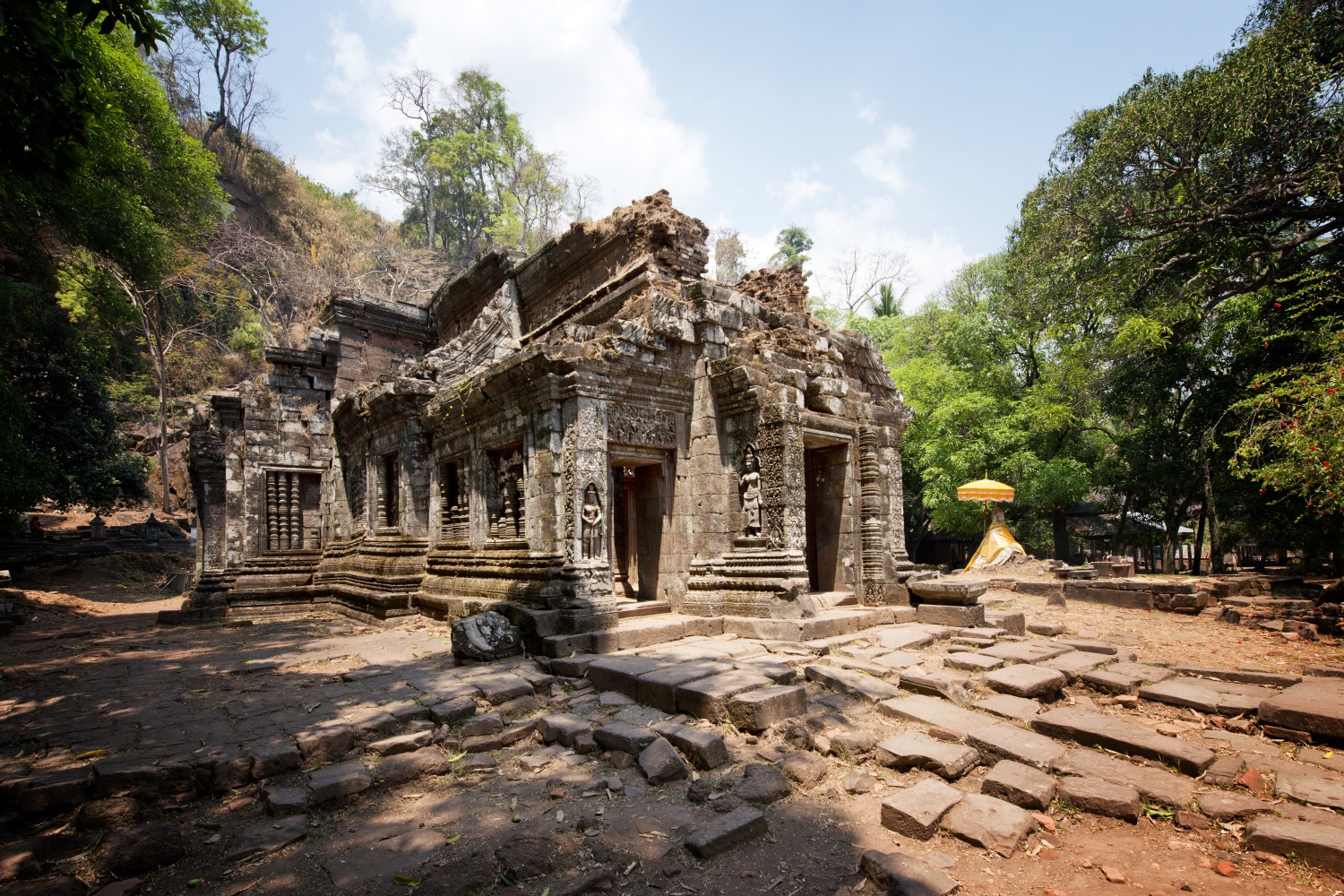
The '100 waterfalls' hike, which involves scrambling up a series of cascading falls in northern Laos, was only discovered in 2008 and is increasingly becoming popular among those visiting the once sleepy village of Nong Khiaw, where trekking and kayaking have taken off. The great thing about the 100 Waterfalls hike is you’re generally immersed to your shins in water, grappling up ropes and splashing through streams, so the often oppressive Laos heat is less of a problem. Eco-conscious outfit Tiger Trail offers one-day trekking trips.
One of the highlights of a trip to Laos has got to be a visit to forbidding Tham Kong Lo cave. Hidden deep in the wilderness of central Laos, this limestone cave is an awe-inspiring 7km long, up to 90m high in places, and is home to bats and bird-eating spiders. Hop in a small boat and navigate the vast river passage in almost complete darkness but for the glow of the boatman’s headlamp and your torch. As part of a tour, you also get to alight half-way and explore a dramatically lit stalactite forest.
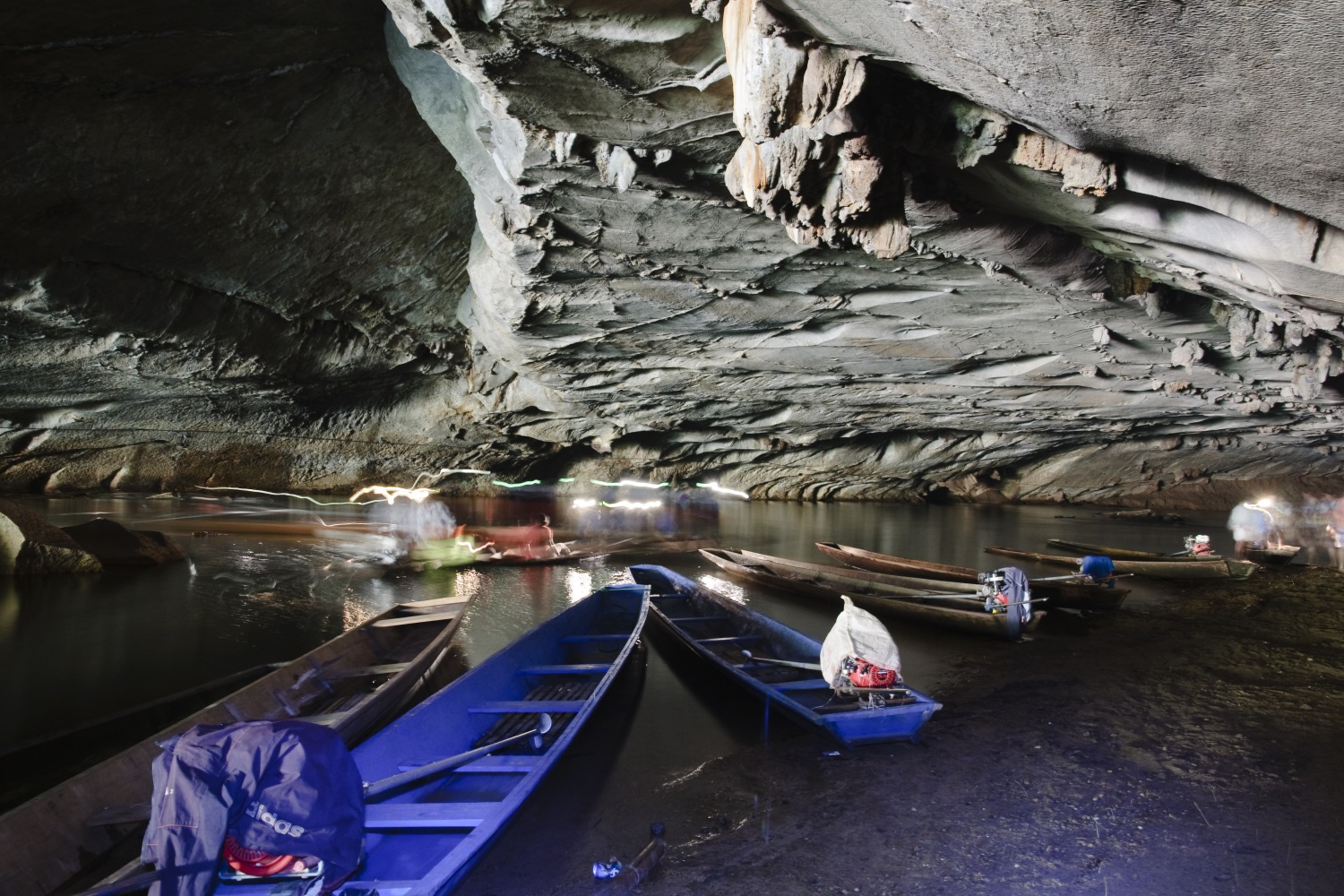
The vast Vieng Xai Caves system is one of Laos’ most important and unusual historic sites, where signs of the country’s wartime past still remain. During the Vietnam War, 20,000 people lived here to escape the relentless bombing. They built hospitals, markets and even a theatre in the network of 450 caves. Experience what life was like by taking a tour of the site.
Whether you take a tour or go it alone, cycling is one of the best ways to enjoy Laos’ stunning scenery, meet locals and experience remote and less accessible parts of the country. From taking a gentle path through the rice paddies to mountain-biking up peaks and winding through jungles, there is a two-wheeled adventure to suit everyone. Most tourist destinations have bicycles to rent, but Luang Namtha, Udomxai, Luang Prabang and Vientiane are among the many top spots for cycling.
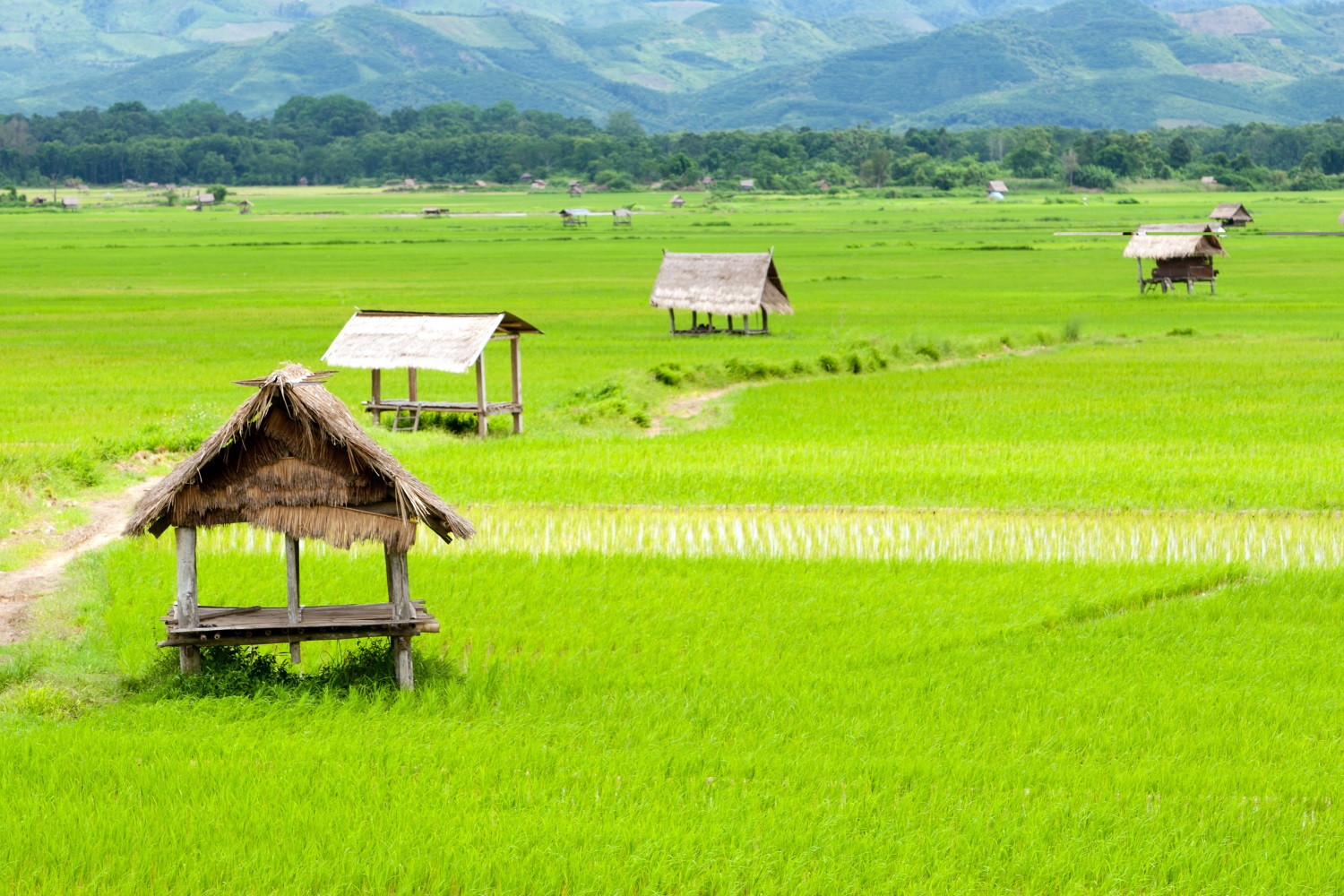
The best treks lead to somewhere unexpected, and the hike to the Katang villages of Dong Phu Vieng National Protected Area won’t disappoint. After a day walking through sacred forest, trekkers can stay with Katang villagers and experience a way of life very different to that of the rest of the country's population. The villagers believe strongly in spirits and visitors are taught how to avoid taboo behaviour that may disturb them.
November to February is the cool, dry season and therefore a good time for activities such as trekking and cycling. From March to May, temperatures regularly hit 40°C – good reason to head underground for some caving. The wet season is from June to October and is best for water-based activities such as kayaking and rafting.